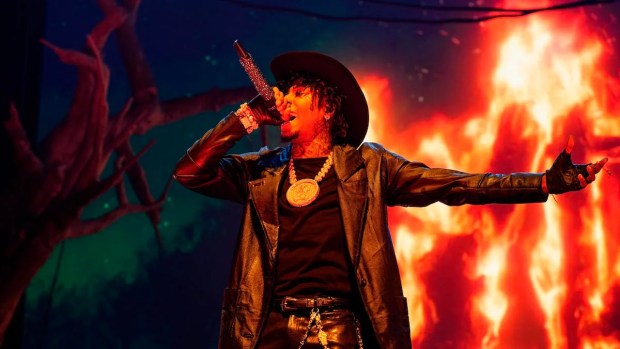
A Historic Shift in the Billboard Hot 100 Chart
For the first time since 1990, the Top 40 of Billboard's Hot 100 chart has no hip-hop or rap songs. This marks a significant moment in music history, as it ends a long-standing trend where hip-hop and rap have consistently dominated the charts.
According to data from Chart Data on X, there are no rap songs in the top 40 for the first time since February 1990. This means that the streak of 35 years, eight months, and three weeks has come to an end with the week of October 25, 2025. The first hip-hop song to appear on the chart is YoungBoy Never Broke Again's "Shot Callin," which is currently ranked at number 43.
The current Billboard Hot 100 is heavily influenced by Taylor Swift. Every song from her latest album, "The Life of a Showgirl," is featured in the top 40. The second position on the list is occupied by a track from the "KPop Demon Hunters" soundtrack. The top 10 also includes songs from artists such as Justin Bieber, Olivia Dean, Morgan Wallen, and Leon Thomas.
Genre Dynamics and Cultural Reflections
In its analysis of the chart, Vice highlighted that country music seems to have a clear sense of its leading artists, while other genres are struggling to find their identity or direction. The outlet suggested that the country genre might be undergoing a transformation soon.
Caleb Catlin, a writer for Vice, pointed out that hip-hop has never truly disappeared because of its cultural significance and role in Black artistic expression. He emphasized that hip-hop's influence remains strong despite its absence from the top 40.
Catlin noted that the current situation might not be entirely negative. He suggested that the post-pandemic era has brought turbulence to all forms of media, and it makes sense that hip-hop would need a period of re-evaluation. He added that rap has become more focused on commercial success rather than artistic integrity.
Rebalancing the Music Landscape
Catlin believes that finding the right balance could help restore hip-hop's cultural relevance and allow it to make a comeback. He argued that sharing space with other genres isn't necessarily a bad thing. It's a natural evolution in the music industry, where different styles can coexist and influence each other.
This shift in the Billboard Hot 100 reflects broader changes in the music landscape. As artists explore new sounds and audiences seek diverse experiences, the dominance of any single genre may wane. However, this doesn't mean the end of a genre—it often signals a period of growth and reinvention.
Looking Ahead
While the absence of hip-hop in the top 40 is notable, it's important to recognize that music is ever-evolving. Artists from various genres continue to push boundaries and redefine what resonates with listeners. The future of the Billboard Hot 100 will likely reflect these ongoing changes, showcasing a dynamic and multifaceted music industry.
As the industry adapts to new trends and challenges, it's crucial to support innovation and diversity in music. This ensures that all genres have the opportunity to thrive and contribute to the rich tapestry of global culture.

Post a Comment